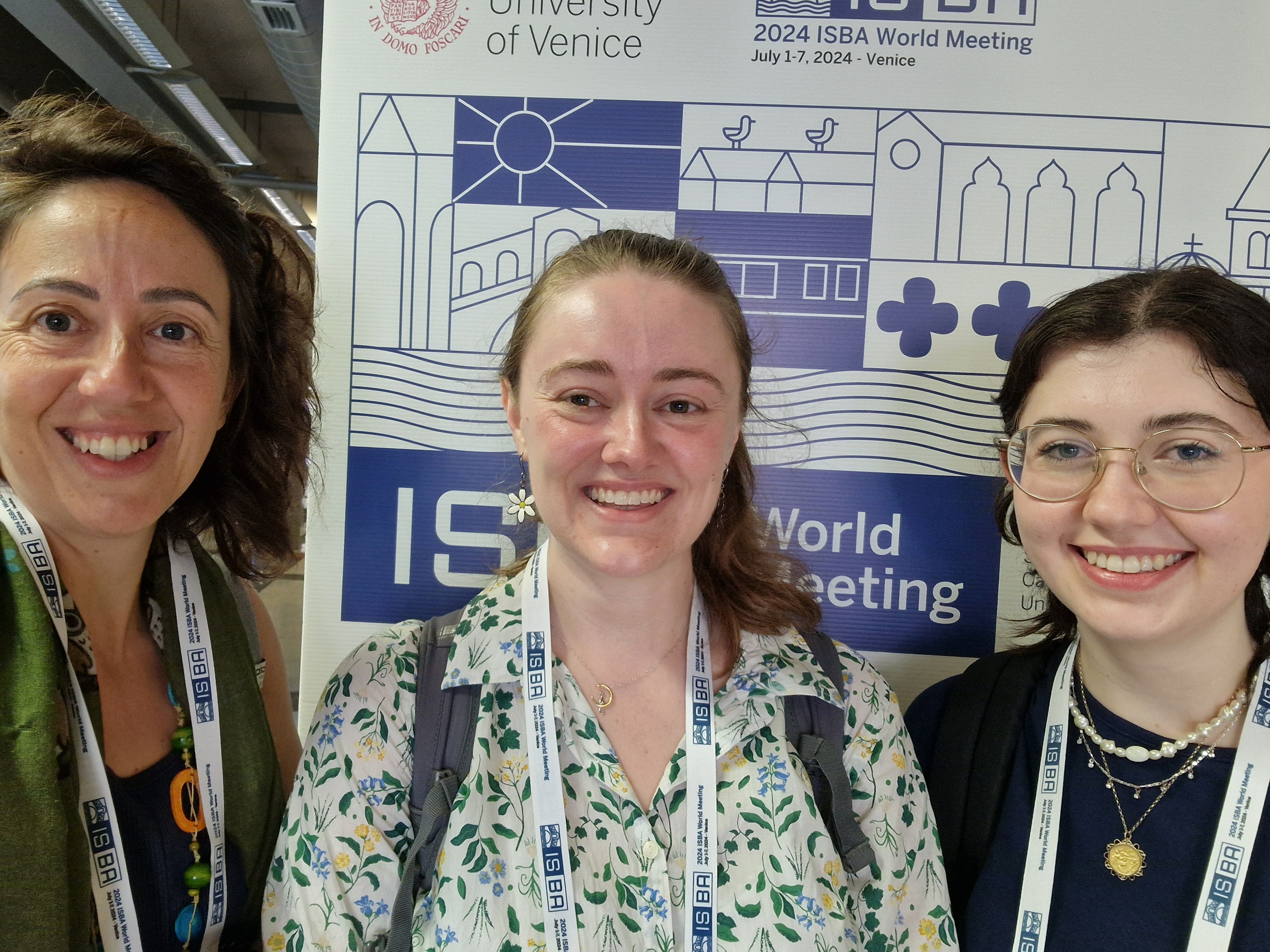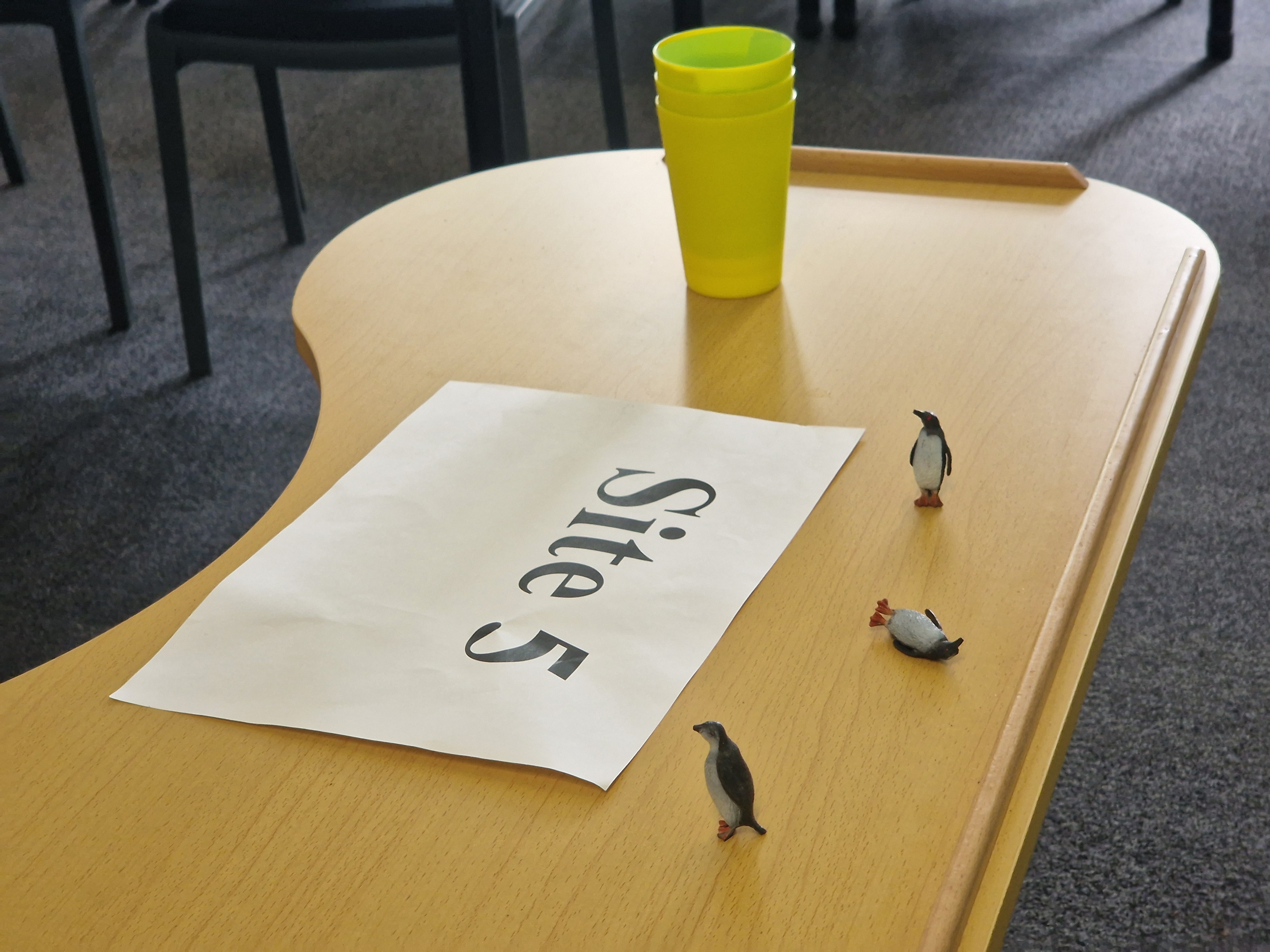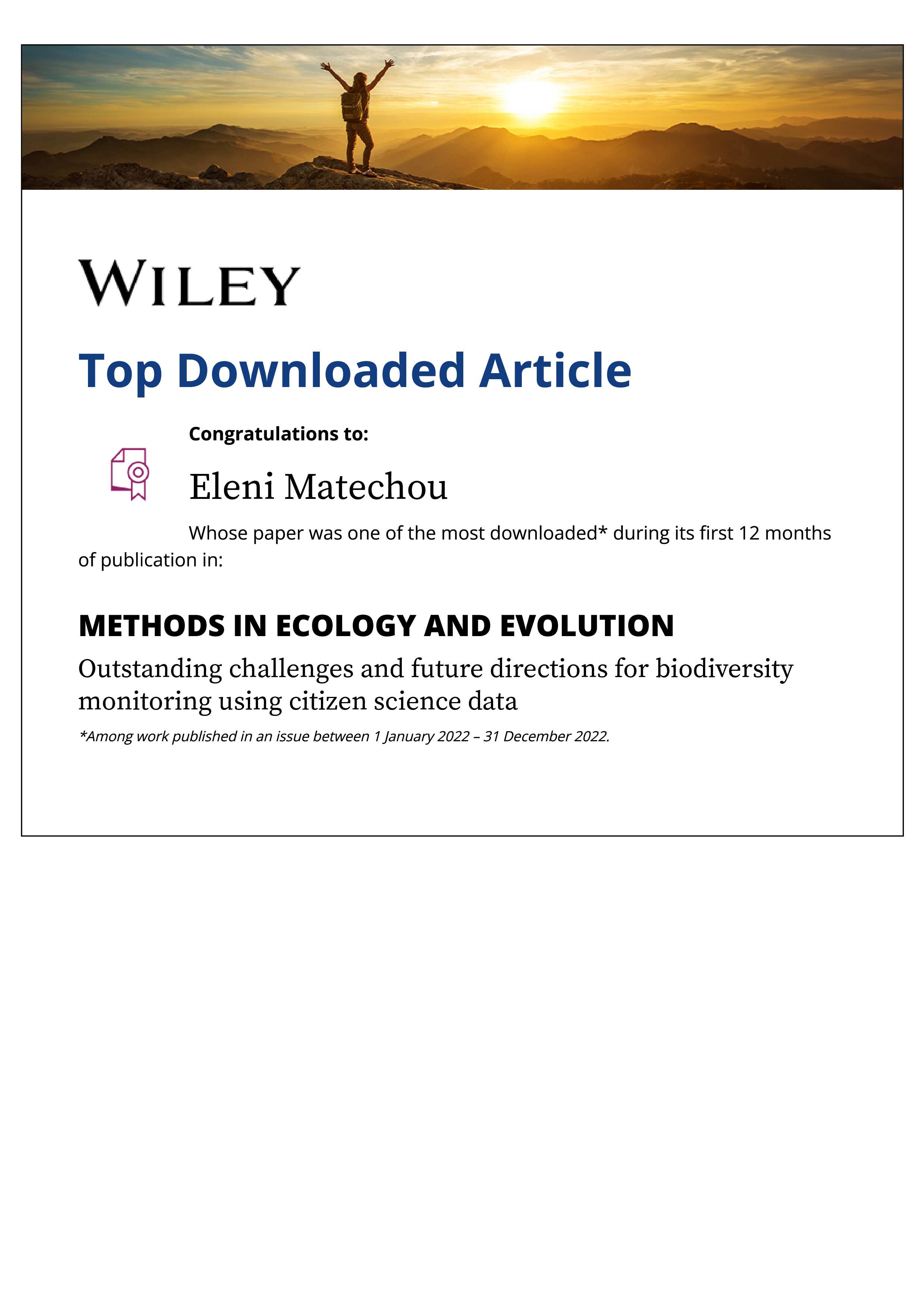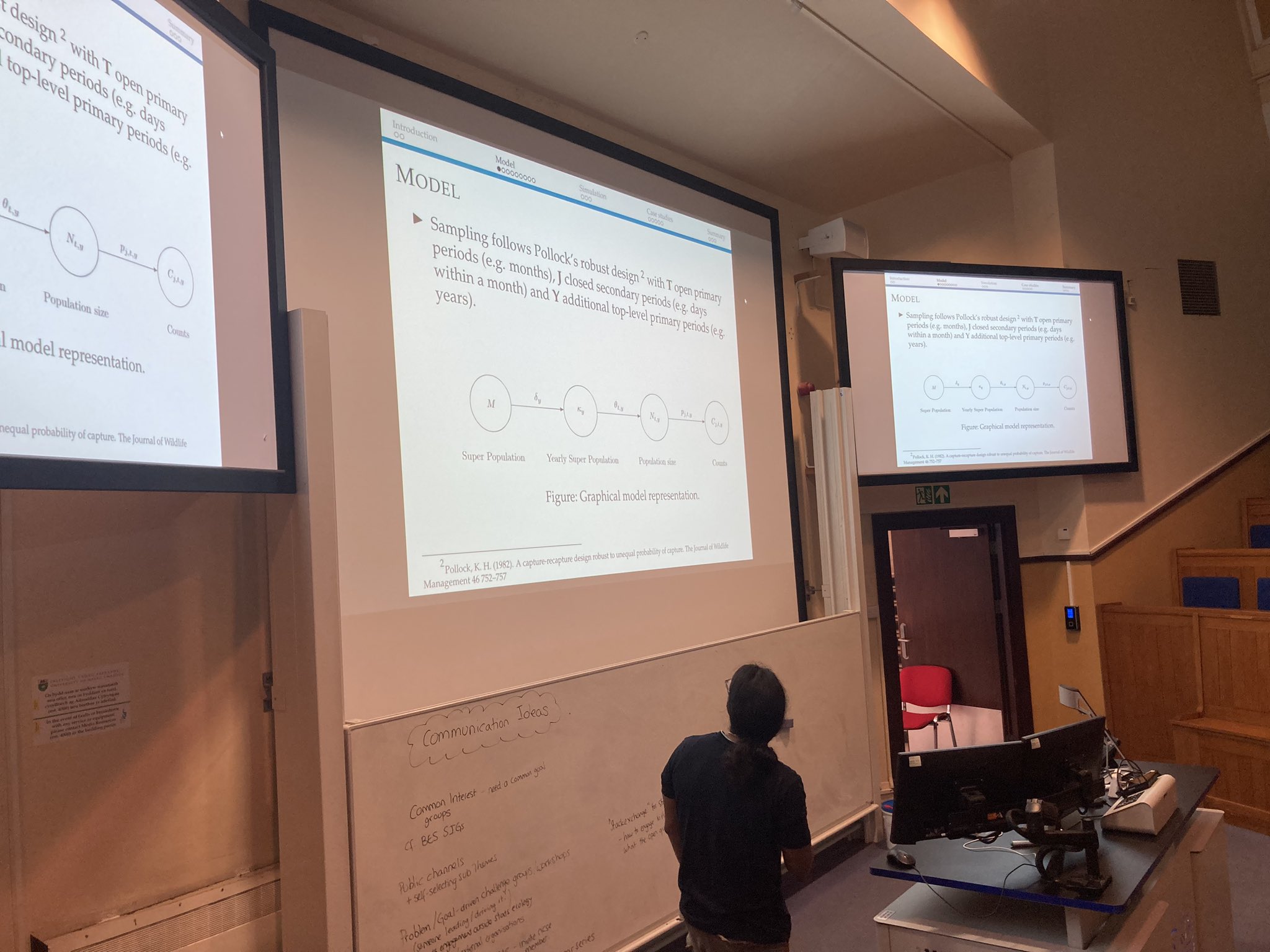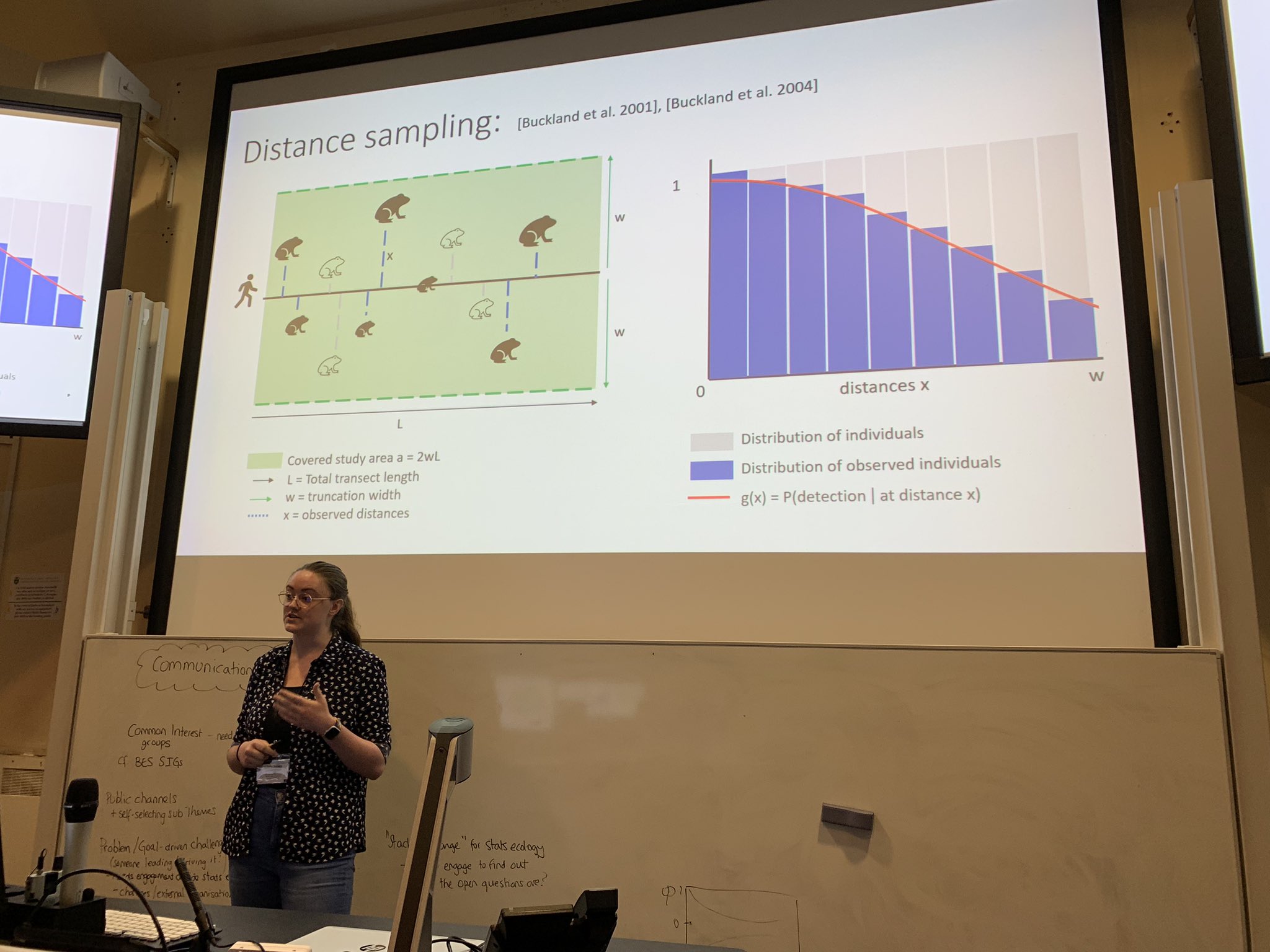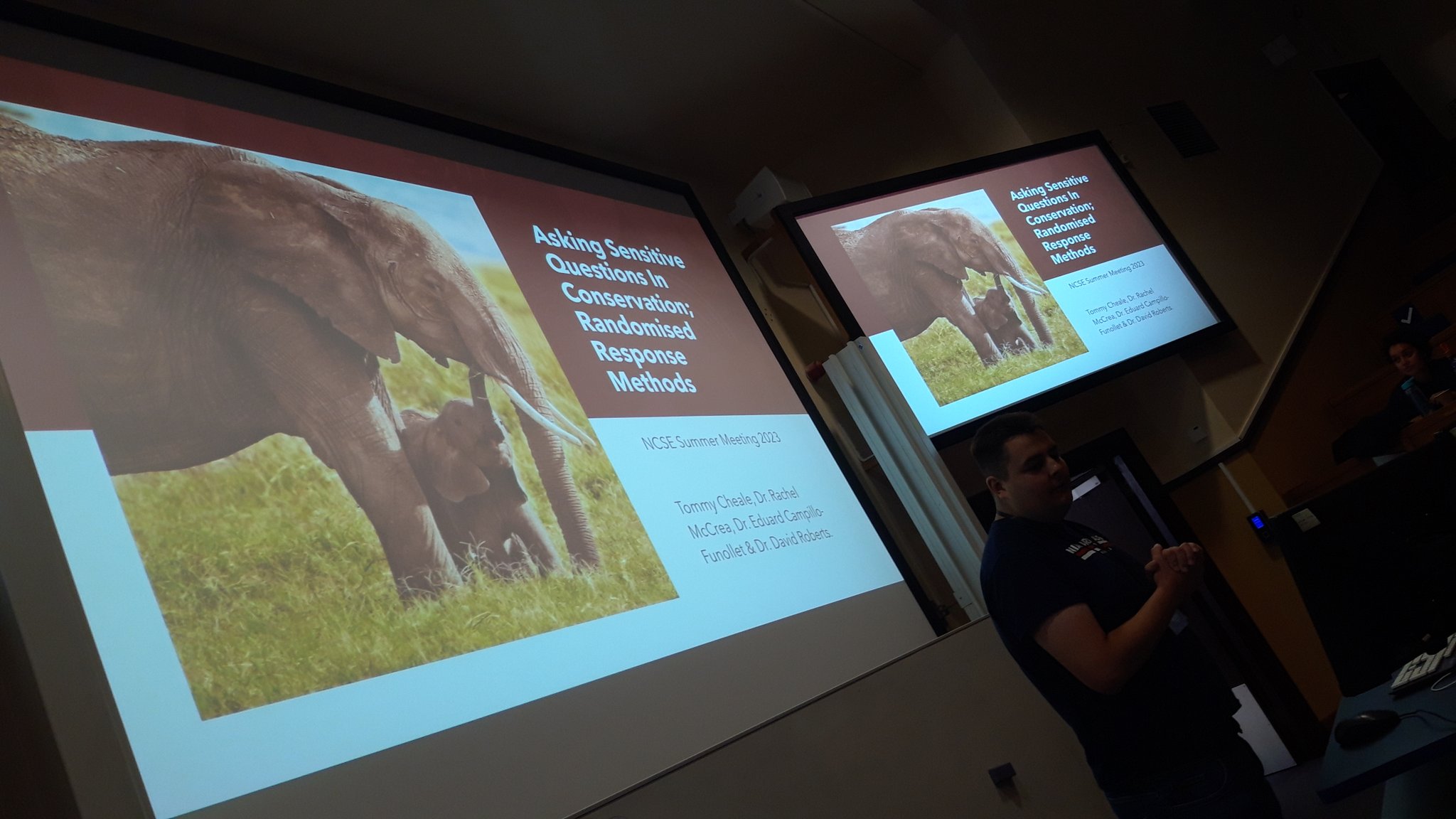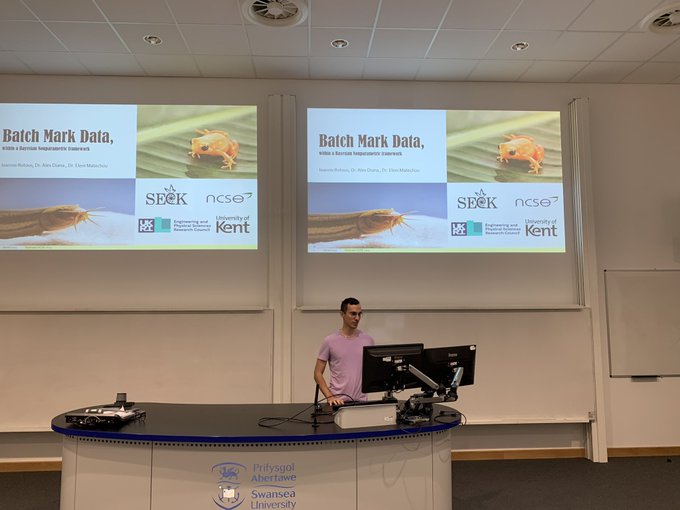
SE@K attending ISBA
Milly, Lucy and Eleni attended ISBA in Venice 1-8 July 2024 where they got to learn about the latest in Bayesian inference, as well as to listen to foundational talks on the topic by some of the most established researchers in the field.

Stats gone wild
SE@K run the established and successful “Stats gone wild” event once more this year, with PhD students Milly, Tommy and Lucy running sessions on removal models, occupancy models and capture-recapture models, respectively.
The day also included a visit and information on hedgehogs by Lisa from Thorne Rescue and three two-week old hoglets!

New paper – Motivations and sensitivities surrounding the illegal trade of sea turtles in Costa Rica
Illegal wildlife trade can threaten biodiversity and economic development. Criminal enterprises may add wildlife products to their list of illicit goods by using established trade routes, networks, and individuals. On the Caribbean coast of Costa Rica, killing of sea turtles and removal of their eggs is commonplace. However, beyond conservation NGOs reporting evidence of illegal take, little is known about this activity. Through semi-structured interviews with law enforcement, community members, NGOs, and illegal harvesters, alongside anecdotal information and observations, we aimed to understand the motivations for illegal take. To cross-reference these findings, we assessed sensitivities surrounding illegal harvesting by asking the general public sensitive questions using the randomized response technique; a method used to elicit sensitive information whilst insuring the anonymity of respondents. We included a questionnaire to establish if differences in demographics affected the probability respondents would admit to a turtle-related crime. Our findings identified a rare example of illegal extraction of a wildlife product driven by motivations that were not exclusively livelihood based. We found the majority of illegal take was undertaken by relatively few individuals, dependent on narcotics. The most cited reason for illegal take was that turtle eggs could be used to procure drugs. Law enforcement was under resourced, and informants reported that prosecutions were rare. Local people preferred to purchase rather than harvest eggs suggesting the trade is supply-driven. Those interviewed did not generally regard the subject of illegal harvest as sensitive. Low education levels, high unemployment rates, and marginalization of certain groups may increase susceptibility to narcotics. Although substance misuse and addiction appear to drive illegal trade, associated poverty and marginalization may explain why drug dependency is so prevalent in Caribbean Costa Rica. Increased work opportunities and drug rehabilitation programs may assist in reducing illegal take of turtle eggs on nesting beaches.
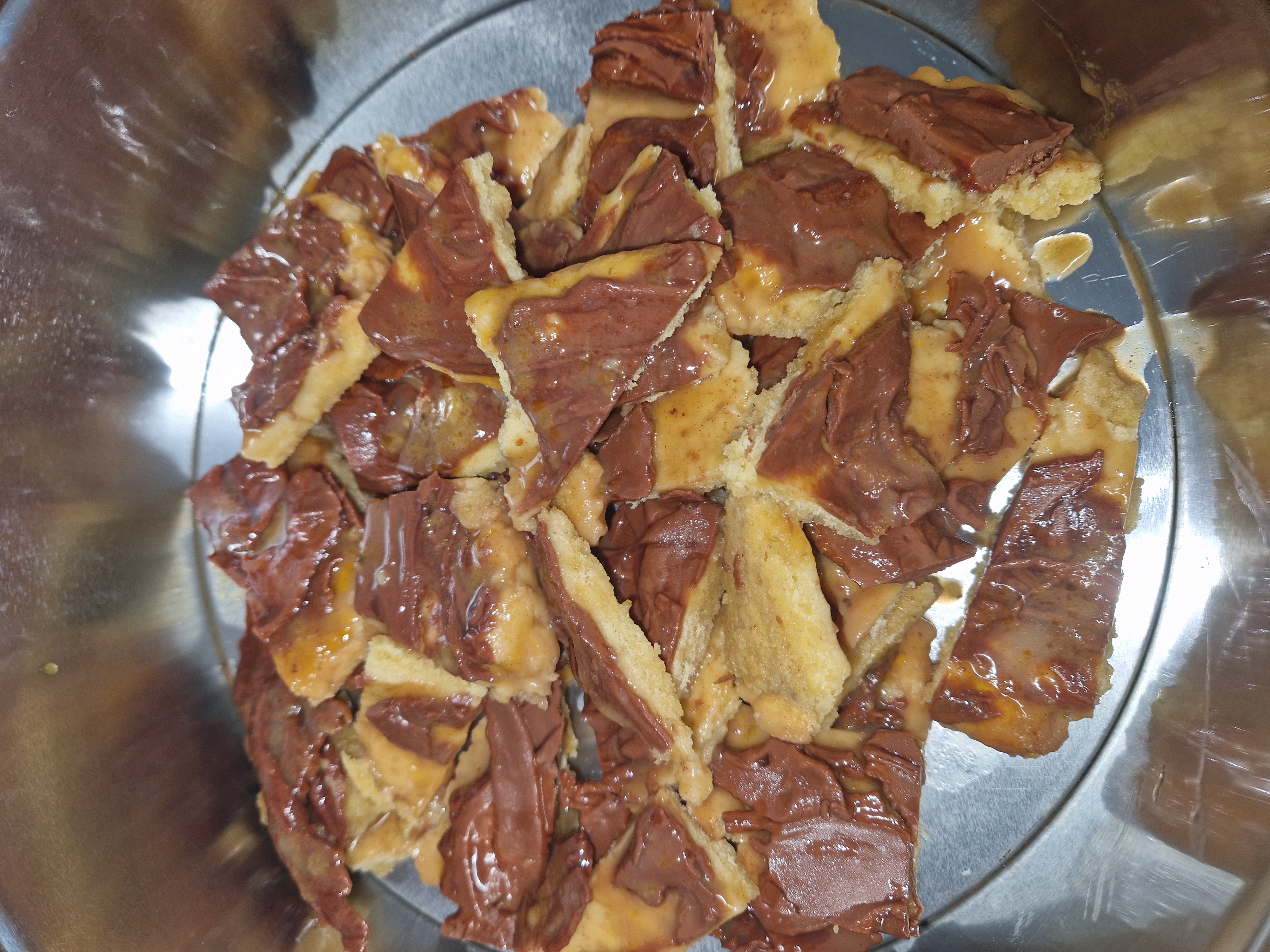
SE@K Thursday research lunch & cake – 2023/2024
For the second term of the 23/24 academic year, we have an exciting plan for SE@K and guest talks:
- 25th Jan Session : Alex Talk ; Cake : Milly
- 1st Feb Session : Meta-Regression ; Cake : Tommy
- 8th Feb Session : Daniel Talk ; Cake : Ioannis
- 15th Feb Session : Talk by Jon Barry from CEFAS on MCMC for machine learning environmental monitoring; Cake : Diana
- 22nd Feb Session : Ioannis Talk ; Cake : Eleni
- 29th Feb Session : TBA ; Cake : Lucy
- 7th Mar Session : Lena Talk ; Cake : Lena
- 14th Mar Session : Tommy Talk ; Cake : Milly
- 21st Mar Session : Milly Talk ; Cake : Ioannis
- 28th Mar Session : Lucy Talk ; Cake : Tommy
- 4th Apr Session : Lunch ; Cake : Diana
The talks in the first term were:
- 28th of Sep Session : Biosciences lecture; Cake : Eleni
- 5th of Oct Session : SE@K intro – all; Cake : Diana
- 12th of Oct Session : Building a website – all; Cake : Daniel
- 19th of Oct Session : Data presentation on Bats – Denise; Cake : Bruno
- 26th of Oct Session : Data presentation on Moths – Denise; Cake : Ioannis
- 2nd of Nov Session : Building a website – all; Cake : Milly
- 9th of Nov Session : RShiny apps – Tommy; Cake : Lena
- 16th of Nov Session : Ioannis’s paper; Cake : Lucy
- 23rd of Nov Session : GLMMs for moths; Cake : Eleni
- 30th of Nov Session : Monty & Jake – Satellite data; Cake : Denise
- 7th of Dec Session : Daniel I. and team – Wildmeat & agent-based modelling; Cake : Diana
- 14th of Dec Session : Meta-regression; Cake : Daniel
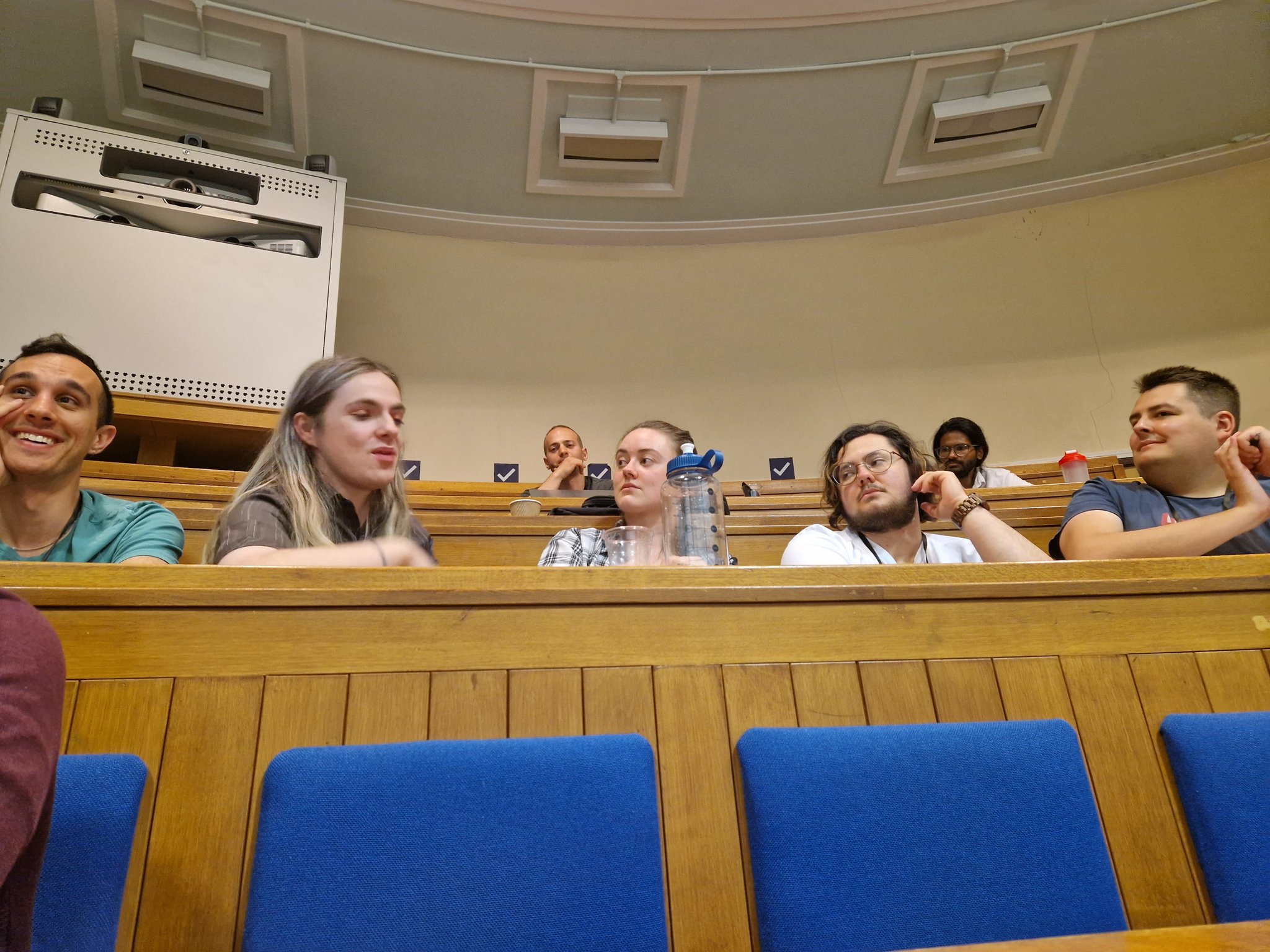
SE@K at NSCE Summer Meeting
Several members of SE@K attended the NSCE summer meeting 26th-28th June in Swansea.
Diana Cole gave a presentation on “Bayesian Identifiability in Ecological Models”
Byron Morgan gave a talk entitled “Bucking the trend”
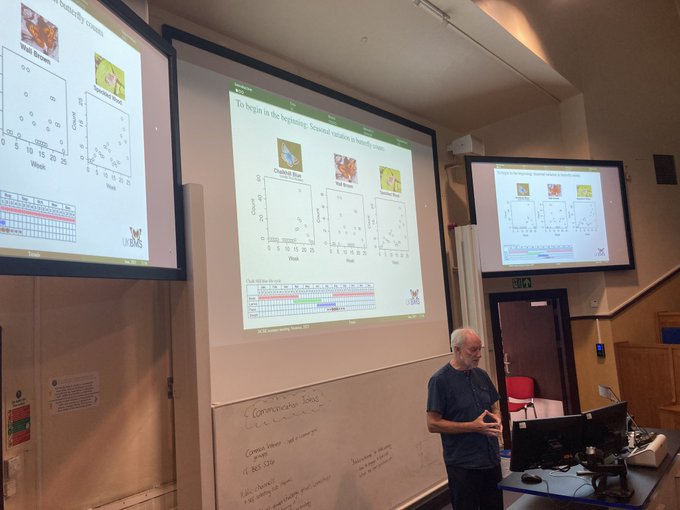
Fabian Ketwaroo talked about “Modelling roost count data”
Milly Jones talked about “Bayesian multi-species hierarchical distance sampling: Density estimation of
vertebrate species in Betampona Madagascar”. Her talk was runner-up in the student presentation competition.
Thomas Cheale’s talk was on “A General Framework for Balancing Privacy and Variance in Randomised
Response Methods”
Alex Diana talked about “Modelling DNA-based survey data”
Ioannis Rotous’ talk was on “Bayesian nonparametric models for batch-mark data”
They also enjoyed the sights in Swansea and the Welsh countryside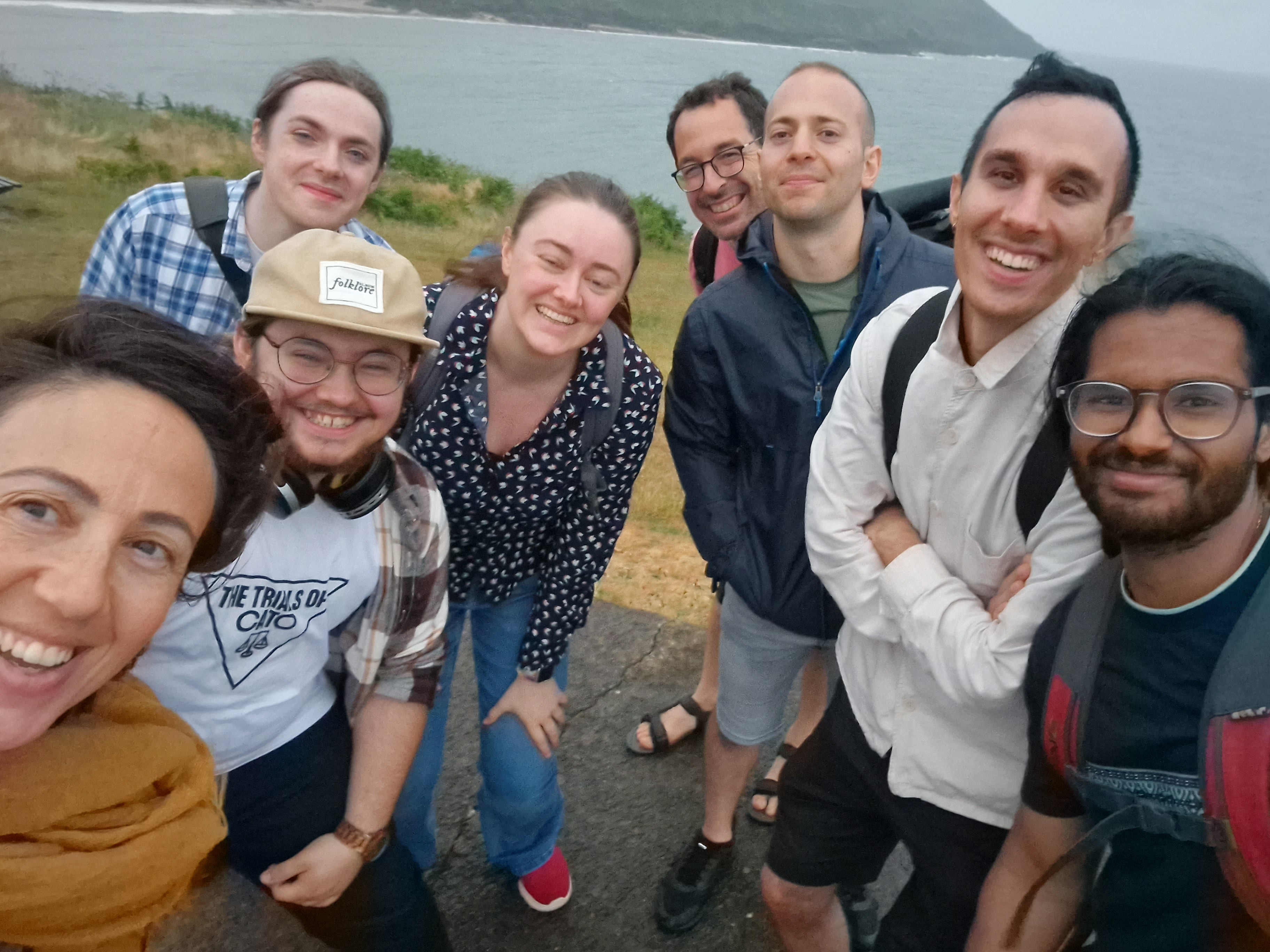
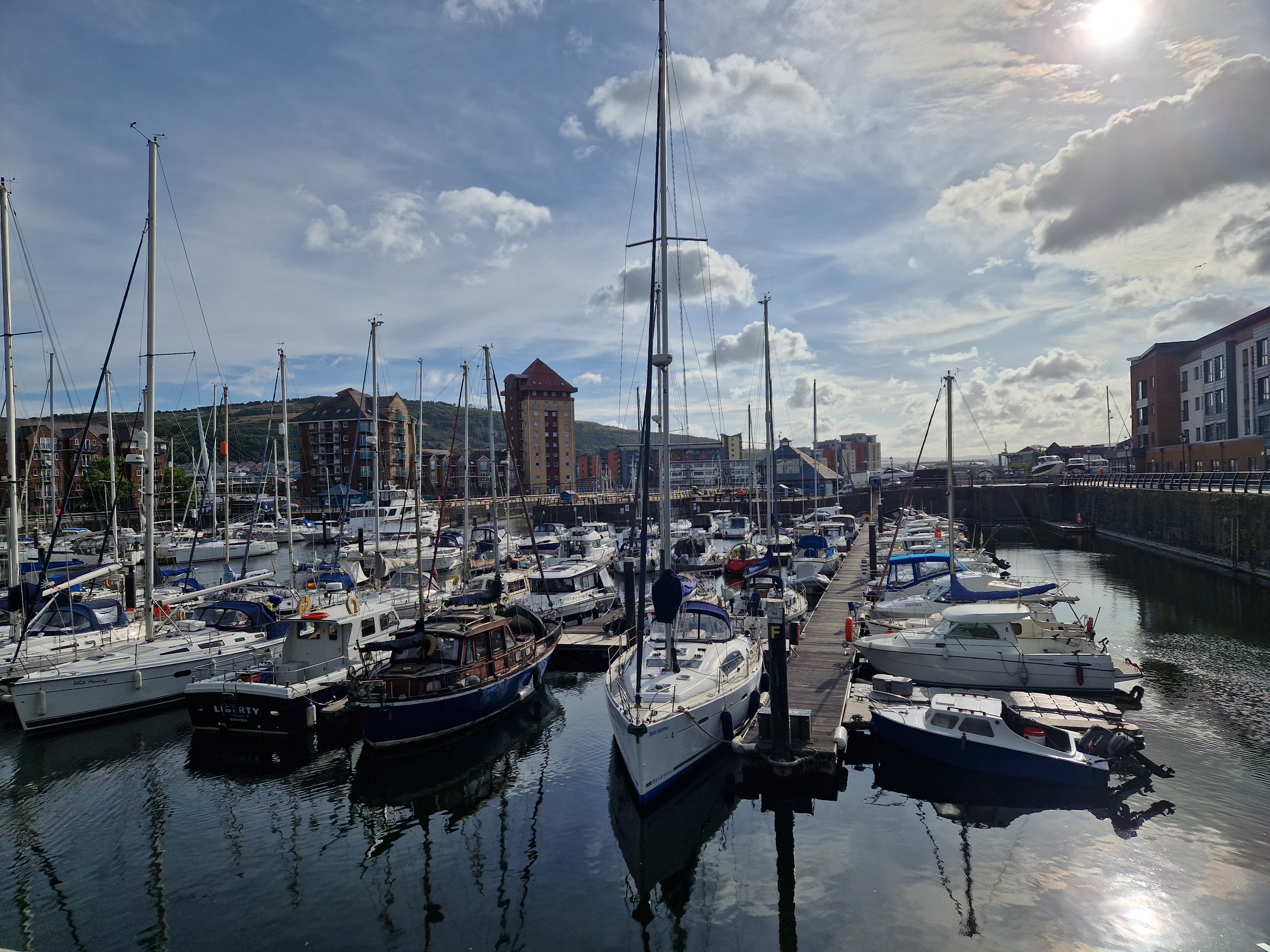

Migration & Movement Signature Research Theme Documentary
Watch the short documentary highlighting the work of the SRT, which also includes members of SE@K, such as Bruno, Daniel and Eleni.
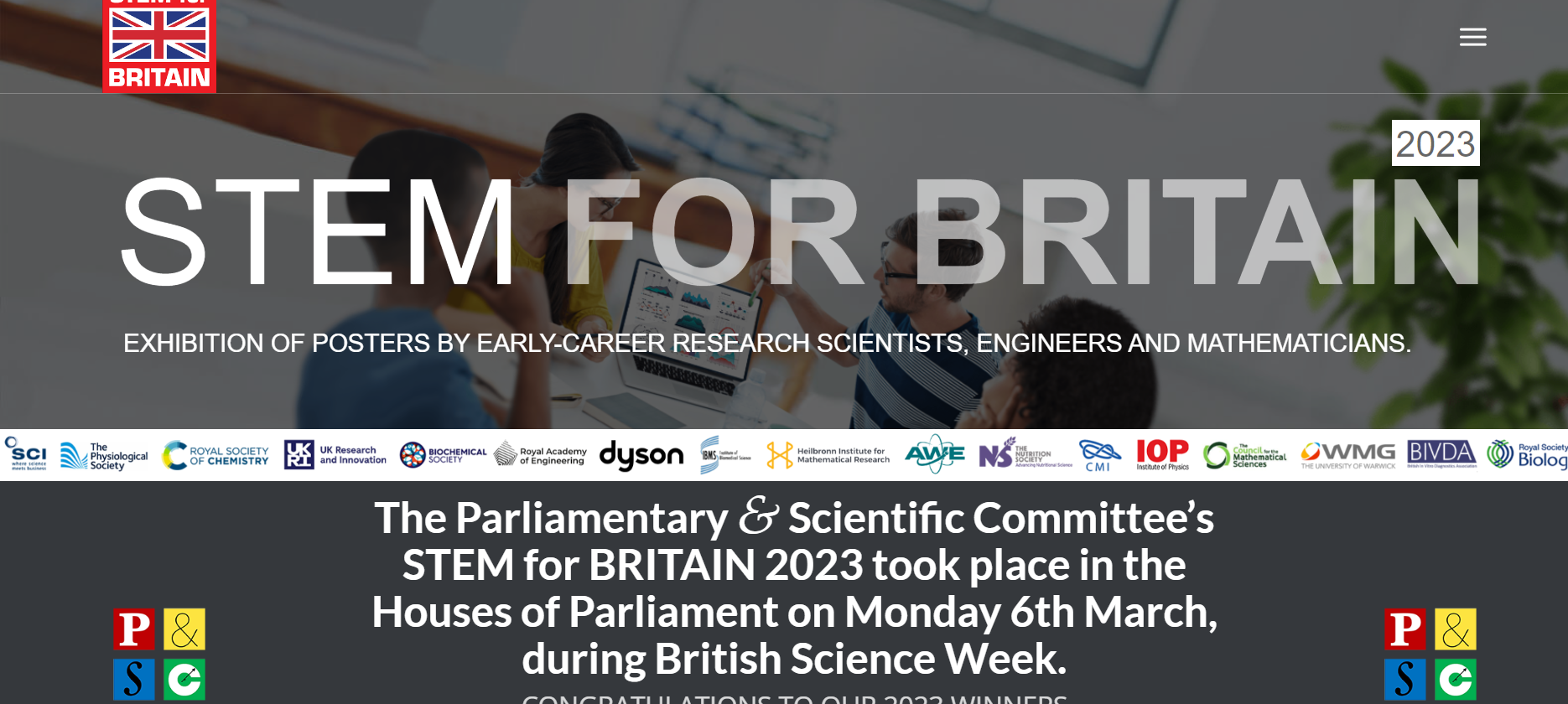
STEM for Britain 2023
Alex presented his work on modelling metabarcoding data at the 2023 STEM for Britain Competition
His poster described the novel modelling framework, introduced in the corresponding paper, and showed results from a data set on ingested DNA from a survey in China.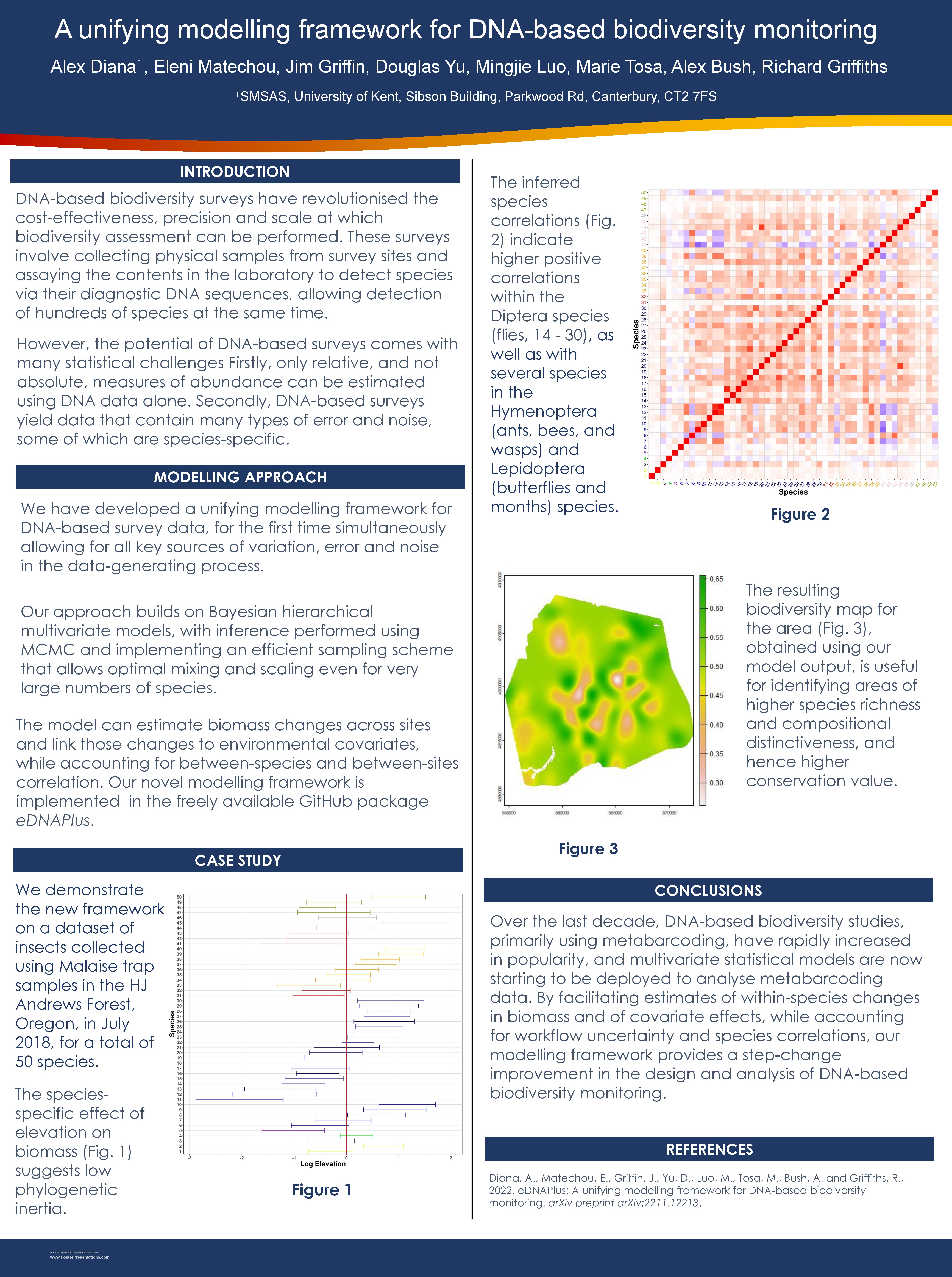

SE@K Thursday lunches – Summer 2023
For the last term of the 22/23 academic year, we have an exciting plan for SE@K and guest talks
- 11th of May Session : eDNA – Alex/Eleni; Cake : Eleni
- 18th of May Session : Occupancy data – Ardian Ardiantiono; Cake : James
- 25th of May Session : BeeWalk modelling – Fabian; Cake : Fabian
- 1st of June Session : Elephant killings – Kennedy Leneuiyia; Cake : Milly
- 8th of June Session : Extinction Models – Dave Roberts; Cake : Bruno
- 15th of June Session : Binary time series – Takis (TBC); Cake : Daniel
- 22nd of June Session : PhD student NCSE presentations; Cake : Diana



